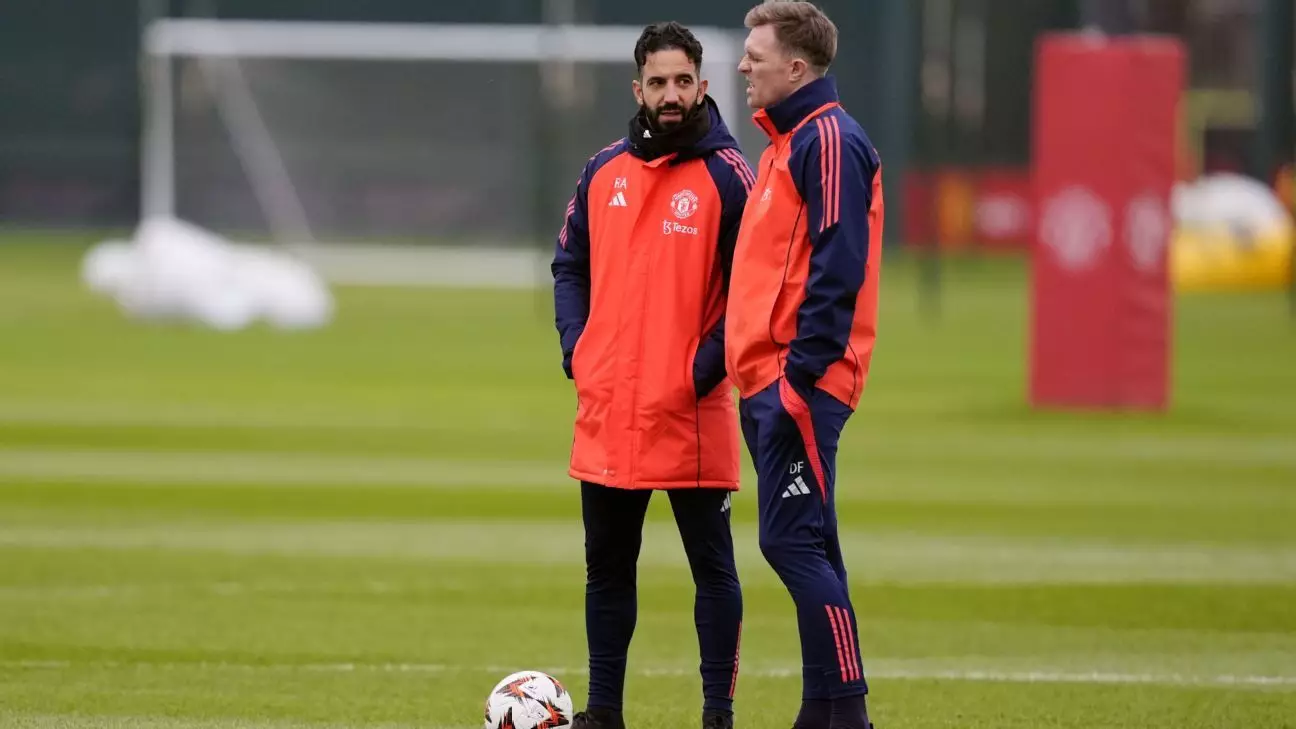In a startling development, Manchester United has found itself grappling with the sudden exit of Dan Ashworth just months after he was brought on board. The sporting director’s departure raises questions about the stability and direction of the club, especially with the high expectations set by Sir Jim Ratcliffe’s vision. Rated as a significant asset following his appointment from Newcastle in July—at a cost exceeding £3 million ($3.8 million)—his abrupt exit poses challenges for the club’s recruitment strategy, which is crucial as the January transfer window approaches.
Ruben Amorim, the newly appointed manager, acknowledged the disruption caused by Ashworth’s departure. However, he quickly emphasized that the club’s long-term aspirations remain intact. Amorim articulated that, while the circumstances are not ideal, the overarching goals remain clear: building a cohesive team and establishing a competitive squad amidst the ever-evolving landscape of professional football.
Amorim’s candid remarks underline the reality of professional sports where managerial and personnel changes can destabilize a club’s operation. Yet, he underlined a central tenet of his philosophy: the importance of continuity in vision amidst flux. According to Amorim, the support he’s felt since his arrival—both from ownership and his current staff—provides a foundation upon which to build, irrespective of one individual’s position within the club. This sentiment of resilience in the face of unexpected changes reflects a seasoned understanding of football’s inherent volatility.
With technical director Jason Wilcox stepping into the limelight, there emerges a clear pathway for continuity in player recruitment. The necessity for a strategic approach to buying and selling players is vital, especially as United evaluates its squad depth and quality ahead of crucial upcoming matches. Amorim recognizes the pressing need to refine the club’s recruitment processes, indicative of a managerial style that values not just immediate results, but also long-term development and clarity of purpose.
Amorim’s recent statements have highlighted his commitment to establishing a clear player profile that aligns with the club’s strategic ambitions. His focus on the academy and the potential to integrate younger talents into the first team demonstrates an understanding of both modern football dynamics and Manchester United’s historic pathway of nurturing homegrown talent.
While Amorim has stated he is only a month into his tenure, his insistence that team performance must remain paramount signals a rigorous approach to team management. The warning to players regarding their futures in light of their performances reflects a commitment to excellence that is essential in a club of United’s stature. Failure to perform, he suggests, may result in significant changes, underscoring the high stakes involved at the top level of the game.
As United prepares for their Europa League encounter against Viktoria Plzen, Amorim’s optimism shines through. He recognizes the importance of securing a victory, not just for progression in the tournament but also for boosting player morale and establishing confidence. United’s recent struggles to gain ground in European competitions accentuate the significance of this match—an opportunity to shift the narrative away from inconsistency.
Viktoria Plzen, known for their formidable home record, presents a formidable challenge, having not lost at home since March. This makes the upcoming match even more pivotal, pushing United to not only fight for qualification but to also demonstrate a readiness to compete on the European stage. Amorim’s shrewd acknowledgment of the benefits associated with avoiding additional playoff matches showcases his understanding of the operational fatigue associated with an extended schedule.
Whilst Manchester United is dealing with instability due to Ashworth’s exit, Ruben Amorim demonstrates a readiness to confront these challenges head-on. His clear vision for the future, grounded in the principles of player development and performance, may just be what the club needs as it seeks to reclaim its status at the summit of football. As the team steps into the next phase of their journey, maintaining focus and a commitment to ambitious long-term goals will be essential.

Leave a Reply